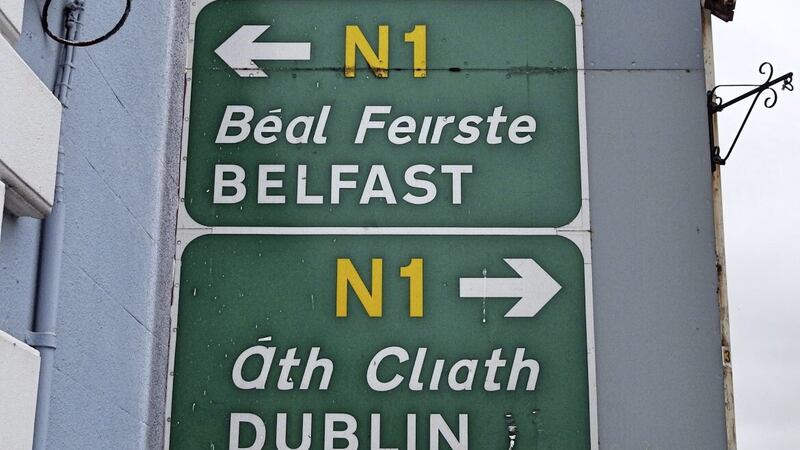I have to confess, the latest instalment of the Irish Times/ARINS survey has me scratching my head a fair bit.
ARINS – Analysing and Researching Ireland North and South – is a joint academic project of the Royal Irish Academy and the University of Notre Dame and part of the research has been undertaken in conjunction with The Irish Times.
Now before I continue, I’m not questioning the statistics nor the academic credentials of either Professor Brendan O’Leary or Professor John Garry. I don’t think the survey is necessarily inaccurate but I don’t think it is reflective of what The Irish Times is telling us it is reflective of.
Some of the headline statistics are that two-thirds of people surveyed in the Republic of Ireland do not have friends in the north, 80 per cent do not have family in the north and just over half have not travelled to the north in the last five years.
Going the other direction, around half of people in the north said they do not have friends in the south, almost two-thirds don’t have family and about a quarter have not travelled to the south of Ireland.
It is a huge leap to extract from these statistics that “Partition has become embedded in daily lives”, as The Irish Times headline states. For a start, that is patently not true in border counties where there is huge interaction across social, economic and sporting areas.
NISRA statistics for the 2021 census show that 2.2 per cent of the population of the north were born in the Republic of Ireland.
The CSO does not capture census data in the same way but it does break down population by county and in Cork, for example, 74 per cent of the population were born in the county, 10 per cent elsewhere in Ireland (31 counties) and 15 per cent overseas.
Whatever way you slice it, there isn’t a whole lot of internal migration on the island outside of the Dublin commuter belt, so it’s actually surprising that the numbers of people with family members in the other jurisdiction are as high as they are.
People travel for pleasure or to visit family. It is unsurprising that people from the north travel south much more.
Dublin Airport has so many more flight choices than either of the Belfast airports. People attend sporting events in Croke Park and the Aviva Stadium and they travel to see big-name international bands and performing artists in the larger venues that Dublin has to offer in order to make these live events financially viable.

This month, I can stay two nights in a four-star Belfast city centre hotel for about €350, or I can fly from Dublin to Sofia, Bulgaria and spent three nights in a four-star hotel at a cost of €330 for two people.
Our leisure travel choices are dictated by where sounds more exciting, where we have never been before and the fact that for two summers we couldn’t get on a plane.
The analysis that our travel choices reflect our attitude to relationships on this island concerns me.
I had a good look at the map. There are nine counties in Ireland where I have no family or close friends, although I might know people who live there. And in terms of visiting somewhere, if I apply the rule that I have had to have gotten out of the car and bought something and not simply driven through on a motorway or main road en route to somewhere else, then there are eight counties that I have not visited within the last five years.
The fact that I haven’t been to Kerry in so long is a reflection of how long it takes to drive from Derry to Dingle, not because I don’t like or mistrust Kerry people.
It seems to me as if the analysis of the latest statistics from the surveys is alarmist in order to try and justify previous alarmist analysis from pre-Christmas statistics and analysis which warned us that a “Hard core was fiercely opposed to unity” and that “many fear the likelihood of post-vote conflict” following any referendum on reunification.
No-one is surprised there will be some who resist reunification, but it is the job of responsible analysis to point out that any fear of widespread violence following a referendum is not well-founded.
We’re talking about loyalist violence against a British state who will be the ones to have called the referendum, because that is who is empowered to do so under the provisions of the Good Friday Agreement. It is not credible that the powers that be wouldn’t act decisively in such circumstances.
Conflating the number of friends or family members someone has, or where they go on their holidays, isn’t a reliable indicator of our attitude towards each other on this island. In fact, doing so risks undermining the real value this research could have in monitoring demographic and attitudinal evolution in the years to come.








